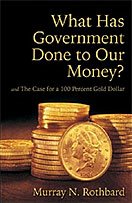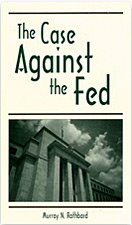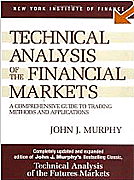J Sinclair: Proposed Gold Sales by IMF Not Harmful to Market
Dear CIGAs,
China has a trillion dollars in foreign exchange reserves, wishes to offload dollars, and this is a perfect fit. The year of the Rat is a year of opportunity for some, especially the Chinese. Any sales of gold have nothing to do with the market for gold as not one ounce will ever see the free market. The buyers will be gold-poor central banks.
All the IMF sales did in the 70s was allow huge buyers to enter the market at one price. That attracts the major buyers.
The OTC derivative market is $516 trillion, dwarfing the $92 billion worth that the IMF holds. In today's financial world the $92 billion is chump change.
One large banking entity could easily lose $92 billion on failed derivatives in the final analysis.
The article below is designed to make a mountain out of a mole hill. I do not think it means a damn thing to the gold price trend. The only important fact is that the IMF just demonstrated its total lack of financial sense as it might only hold depreciating paper promises to pay nothing at all backed by nothing whatsoever.
Selling gold like this only occurs in bull markets and has historically been useless in stopping the price from increasing. In fact, these sales helped the price of gold move higher by facilitating demand from huge interests in the 70s and it will even more so now.
There are those who would try to make this look serious but it is not. This indicates the price of gold is not even half way to its upside resting point. This was true in the 70s and is today as well.
Finally, those that control black gold also control real gold. Those that you feel have caused the problem and are anti-gold are really NOT. To know this, you need only the eyes to see and the ability to connect the dots.
This will be looked on as something great for the price of gold as was the case in the 70s when the same entity, the IMF, proposed and did the same thing, only to stop before the buyers took all their gold. The same will happen if they even start. Note that the proposed sales come when the US Economic rescue plan is about to occur. The reason is clear.
*************************************************
This from GATA:
Dear Friend of GATA and Gold:
Before panicking about the Reuters story appended here, reporting that the G7 conference in Tokyo likes the idea that the International Monetary Fund should raise money for itself by selling some of its gold reserves, consider a few things.
1) The prospect of gold sales by the IMF has been hanging over the gold market for years.
2) For almost a decade now central bank gold sales have been accompanied by higher gold prices, not lower prices. Gold demand has been exceeding gold production by about a thousand tonnes per year, the gap being covered only by central bank dishoarding. Even with the rising price gold production is declining, the price still not being high enough to make greater production generally profitable.
3) Mobilization of IMF gold suggests that individual central bank gold reserves are nearing exhaustion or that individual central banks are no longer willing to dishoard what they have left.
4) There's no assurance that the IMF has the gold attributed to it and no report as to where the gold its kept. Further, as the Reuters story here acknowledges, any gold sales by the IMF would require approval by the U.S. Congress, which has opposed the idea in the past. This opposition has been offered in the name of supporting developing countries whose economies rely to a great extent on gold mining, but given the secrecy and unaccountability around the gold reserves of various nations, including the United States itself, it is fair to wonder whether the opposition is not also a matter of concealing some impairment of the IMF gold.
5) Though it is never questioned by the financial press, the rationale that continues to be offered for selling the IMF's gold is plainly ridiculous. That rationale is, as the Reuters story here reports, that the IMF gold should be liquidated and the proceeds invested "in financial securities with positive yields." But what "yields" could be more positive than the "yield" acknowledged for the IMF gold, an increase in value of 400 percent in five years? Is the IMF supposed to be happier with government bonds paying 4 percent per year against inflation rates several times that?
6) Those who want gold restored as the independent arbiter of the international financial system should be thrilled if all central banks and the IMF dishoarded all their gold at once and got out of the gold market for good. Until then, there really won't be a market price for gold, just a desperately manipulated one, a price well below the cost of production -- still a bargain.
CHRIS POWELL, Secretary/Treasurer
Gold Anti-Trust Action Committee Inc.
*****************************************
Newsitem:
By Gavin Jones
Reuters
Saturday, February 9, 2008
TOKYO -- The Group of Seven rich nations on Saturday approved the sale of gold by the International Monetary Fund from April as part of a broad reform of its budget, Italian Economy Minister Tommaso Padoa-Schioppa said.
"There was an acceptance among the G7 that resources should be raised by selling gold," Padoa-Schioppa, who is also the head of the IMF's steering committee (IMFC), told reporters after a meeting of G7 finance ministers in Tokyo.
He said the agreement would be finalised in April and would complement spending cuts being drawn up by the IMF under its new managing director, Dominique Strauss-Kahn.
"The current gold price means a flow of income can be ensured," Padoa-Schioppa said.
Morgan Stanley analyst Stephen Jen said the fund held 103.4 million ounces of gold worth some $92 billion at current market prices. That was up from $23 billion just five years ago.
"The IMF is rich, if it wants to be," he wrote in a recent note to clients, issued before the G7's approval of the gold sales. "This is arguably a good time to consider selling some of these gold holdings and investing the proceeds in financial securities with positive yields."
A surge in oil prices has boosted gold's appeal as a hedge against inflation.
The precious metal gained more than 30 percent in 2007 as safe-haven buying increased due to the credit market turmoil and worries about the health of the dollar as it fell to record lows against the euro.
Gold continued its upward march this year. Cash gold hit a record high of $936.50 an ounce on Feb. 1, up about 12 percent since the start of the year, and was quoted at $918.00/918.70 an ounce in late New York on Friday.
Padoa-Schioppa noted that in the case of the United States, approval for gold sales would be required by Congress, meaning "the administration must present a proposal and support it."
Padoa-Schioppa said he would step down as president of the IMFC because of the recent fall of the Italian government, which meant he would soon lose his job as economy minister.
Asked if he would continue as IMFC head, he said: "I don't believe so. It has to be a minister in office, and soon I will no longer be a minister in office."
* * *
China has a trillion dollars in foreign exchange reserves, wishes to offload dollars, and this is a perfect fit. The year of the Rat is a year of opportunity for some, especially the Chinese. Any sales of gold have nothing to do with the market for gold as not one ounce will ever see the free market. The buyers will be gold-poor central banks.
All the IMF sales did in the 70s was allow huge buyers to enter the market at one price. That attracts the major buyers.
The OTC derivative market is $516 trillion, dwarfing the $92 billion worth that the IMF holds. In today's financial world the $92 billion is chump change.
One large banking entity could easily lose $92 billion on failed derivatives in the final analysis.
The article below is designed to make a mountain out of a mole hill. I do not think it means a damn thing to the gold price trend. The only important fact is that the IMF just demonstrated its total lack of financial sense as it might only hold depreciating paper promises to pay nothing at all backed by nothing whatsoever.
Selling gold like this only occurs in bull markets and has historically been useless in stopping the price from increasing. In fact, these sales helped the price of gold move higher by facilitating demand from huge interests in the 70s and it will even more so now.
There are those who would try to make this look serious but it is not. This indicates the price of gold is not even half way to its upside resting point. This was true in the 70s and is today as well.
Finally, those that control black gold also control real gold. Those that you feel have caused the problem and are anti-gold are really NOT. To know this, you need only the eyes to see and the ability to connect the dots.
This will be looked on as something great for the price of gold as was the case in the 70s when the same entity, the IMF, proposed and did the same thing, only to stop before the buyers took all their gold. The same will happen if they even start. Note that the proposed sales come when the US Economic rescue plan is about to occur. The reason is clear.
*************************************************
This from GATA:
Dear Friend of GATA and Gold:
Before panicking about the Reuters story appended here, reporting that the G7 conference in Tokyo likes the idea that the International Monetary Fund should raise money for itself by selling some of its gold reserves, consider a few things.
1) The prospect of gold sales by the IMF has been hanging over the gold market for years.
2) For almost a decade now central bank gold sales have been accompanied by higher gold prices, not lower prices. Gold demand has been exceeding gold production by about a thousand tonnes per year, the gap being covered only by central bank dishoarding. Even with the rising price gold production is declining, the price still not being high enough to make greater production generally profitable.
3) Mobilization of IMF gold suggests that individual central bank gold reserves are nearing exhaustion or that individual central banks are no longer willing to dishoard what they have left.
4) There's no assurance that the IMF has the gold attributed to it and no report as to where the gold its kept. Further, as the Reuters story here acknowledges, any gold sales by the IMF would require approval by the U.S. Congress, which has opposed the idea in the past. This opposition has been offered in the name of supporting developing countries whose economies rely to a great extent on gold mining, but given the secrecy and unaccountability around the gold reserves of various nations, including the United States itself, it is fair to wonder whether the opposition is not also a matter of concealing some impairment of the IMF gold.
5) Though it is never questioned by the financial press, the rationale that continues to be offered for selling the IMF's gold is plainly ridiculous. That rationale is, as the Reuters story here reports, that the IMF gold should be liquidated and the proceeds invested "in financial securities with positive yields." But what "yields" could be more positive than the "yield" acknowledged for the IMF gold, an increase in value of 400 percent in five years? Is the IMF supposed to be happier with government bonds paying 4 percent per year against inflation rates several times that?
6) Those who want gold restored as the independent arbiter of the international financial system should be thrilled if all central banks and the IMF dishoarded all their gold at once and got out of the gold market for good. Until then, there really won't be a market price for gold, just a desperately manipulated one, a price well below the cost of production -- still a bargain.
CHRIS POWELL, Secretary/Treasurer
Gold Anti-Trust Action Committee Inc.
*****************************************
Newsitem:
G7 Approves IMF Gold Sales
By Gavin Jones
Reuters
Saturday, February 9, 2008
TOKYO -- The Group of Seven rich nations on Saturday approved the sale of gold by the International Monetary Fund from April as part of a broad reform of its budget, Italian Economy Minister Tommaso Padoa-Schioppa said.
"There was an acceptance among the G7 that resources should be raised by selling gold," Padoa-Schioppa, who is also the head of the IMF's steering committee (IMFC), told reporters after a meeting of G7 finance ministers in Tokyo.
He said the agreement would be finalised in April and would complement spending cuts being drawn up by the IMF under its new managing director, Dominique Strauss-Kahn.
"The current gold price means a flow of income can be ensured," Padoa-Schioppa said.
Morgan Stanley analyst Stephen Jen said the fund held 103.4 million ounces of gold worth some $92 billion at current market prices. That was up from $23 billion just five years ago.
"The IMF is rich, if it wants to be," he wrote in a recent note to clients, issued before the G7's approval of the gold sales. "This is arguably a good time to consider selling some of these gold holdings and investing the proceeds in financial securities with positive yields."
A surge in oil prices has boosted gold's appeal as a hedge against inflation.
The precious metal gained more than 30 percent in 2007 as safe-haven buying increased due to the credit market turmoil and worries about the health of the dollar as it fell to record lows against the euro.
Gold continued its upward march this year. Cash gold hit a record high of $936.50 an ounce on Feb. 1, up about 12 percent since the start of the year, and was quoted at $918.00/918.70 an ounce in late New York on Friday.
Padoa-Schioppa noted that in the case of the United States, approval for gold sales would be required by Congress, meaning "the administration must present a proposal and support it."
Padoa-Schioppa said he would step down as president of the IMFC because of the recent fall of the Italian government, which meant he would soon lose his job as economy minister.
Asked if he would continue as IMFC head, he said: "I don't believe so. It has to be a minister in office, and soon I will no longer be a minister in office."
* * *
Labels: GATA, gold, IMF, J.Sinclair, market manipulation















![[Most Recent Quotes from www.kitco.com] [Most Recent Quotes from www.kitco.com]](http://www.kitco.com/images/live/t24_au_en_usoz_6.gif)
![[Most Recent Quotes from www.kitco.com] [Most Recent Quotes from www.kitco.com]](http://www.kitco.com/images/live/au_go_0030_ny.gif)
![[Most Recent Quotes from www.kitco.com] [Most Recent Quotes from www.kitco.com]](http://www.kitco.com/images/live/au_go_0365_ny.gif)
![[Most Recent Quotes from www.kitco.com] [Most Recent Quotes from www.kitco.com]](http://kitconet.com/charts/metals/silver/t24_ag_en_usoz_4.gif)

















0 ΣΧΟΛΙΑ (COMMENTS):
Post a Comment
<< Home